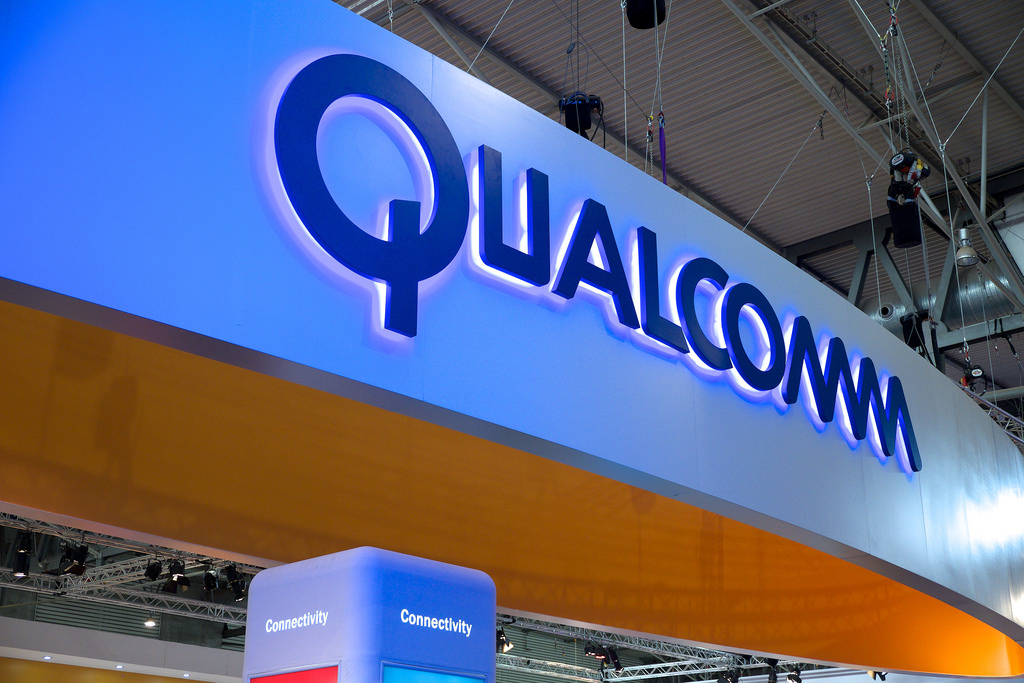The U.S. Federal Trade Commission is currently suing the chip maker Qualcomm, accusing it of forcing Apple to only use its chips for its devices and cutting off the competition. This puts the government agency directly in conflict with the single biggest mobile chip maker in the world.
According to the lawsuit that the FTC filed, Qualcomm maintained its monopoly over the semiconductors inside mobile devices as well as collecting illegally elevated royalties from those that it forced into the arrangement. The lawsuit was filed Tuesday, Bloomberg reports.
“Qualcomm recognized that any competitor that won Apple’s business would become stronger, and used exclusivity to prevent Apple from working with and improving the effectiveness of Qualcomm’s competitors,” the agency said.
This is a blow to Qualcomm since its biggest source of profit right now is technology licensing. Much of the internal processors used on the majority of mobile devices are made possible through the patented technology that the company owns. By announcing that Qualcomm was doing this in a manner that could be constituted as illegal, the FTC is aiming the spotlight at something that could potentially cripple the chip maker.
As to why the agency only decided to pursue this case now and how it found out, it would seem that the arrangement between Apple and Qualcomm ended last September, Forbes reports. This suggests that along with the expiration of the forced exclusivity, the iPhone maker has finally wiggled out of the bind that Qualcomm made for it enough to squeal.
The lawsuit also indicates that the deal started way back when the very first iPhone came out. Since that puts it in 2007, this would mean that Apple has been a prisoner of Qualcomm of sorts for the better part of a decade. Some of the ways that the chip maker kept Apple trapped is by paying it rebates in exchange for not using technology from other companies and threatening to cut off access to its processor technology.



 Google Halts UK YouTube TV Measurement Service After Legal Action
Google Halts UK YouTube TV Measurement Service After Legal Action  Nintendo Shares Slide After Earnings Miss Raises Switch 2 Margin Concerns
Nintendo Shares Slide After Earnings Miss Raises Switch 2 Margin Concerns  SoftBank and Intel Partner to Develop Next-Generation Memory Chips for AI Data Centers
SoftBank and Intel Partner to Develop Next-Generation Memory Chips for AI Data Centers  Missouri Judge Dismisses Lawsuit Challenging Starbucks’ Diversity and Inclusion Policies
Missouri Judge Dismisses Lawsuit Challenging Starbucks’ Diversity and Inclusion Policies  SpaceX Prioritizes Moon Mission Before Mars as Starship Development Accelerates
SpaceX Prioritizes Moon Mission Before Mars as Starship Development Accelerates  Federal Judge Rules Trump Administration Unlawfully Halted EV Charger Funding
Federal Judge Rules Trump Administration Unlawfully Halted EV Charger Funding  Trump Family Files $10 Billion Lawsuit Over IRS Tax Disclosure
Trump Family Files $10 Billion Lawsuit Over IRS Tax Disclosure  SpaceX Seeks FCC Approval for Massive Solar-Powered Satellite Network to Support AI Data Centers
SpaceX Seeks FCC Approval for Massive Solar-Powered Satellite Network to Support AI Data Centers  Palantir Stock Jumps After Strong Q4 Earnings Beat and Upbeat 2026 Revenue Forecast
Palantir Stock Jumps After Strong Q4 Earnings Beat and Upbeat 2026 Revenue Forecast  Supreme Court Tests Federal Reserve Independence Amid Trump’s Bid to Fire Lisa Cook
Supreme Court Tests Federal Reserve Independence Amid Trump’s Bid to Fire Lisa Cook  Nvidia CEO Jensen Huang Says AI Investment Boom Is Just Beginning as NVDA Shares Surge
Nvidia CEO Jensen Huang Says AI Investment Boom Is Just Beginning as NVDA Shares Surge  Trump Lawsuit Against JPMorgan Signals Rising Tensions Between Wall Street and the White House
Trump Lawsuit Against JPMorgan Signals Rising Tensions Between Wall Street and the White House  Instagram Outage Disrupts Thousands of U.S. Users
Instagram Outage Disrupts Thousands of U.S. Users  CK Hutchison Unit Launches Arbitration Against Panama Over Port Concessions Ruling
CK Hutchison Unit Launches Arbitration Against Panama Over Port Concessions Ruling  Global PC Makers Eye Chinese Memory Chip Suppliers Amid Ongoing Supply Crunch
Global PC Makers Eye Chinese Memory Chip Suppliers Amid Ongoing Supply Crunch 































